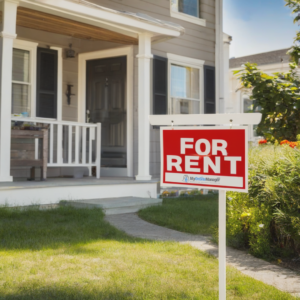
The debate between renting and buying a home has long been a topic of discussion in personal finance. Homeownership is often viewed as a cornerstone of financial stability, offering equity building and long-term investment potential. However, there are situations where renting is the more strategic and financially sound decision. In today’s fluctuating housing market, understanding when renting is the smarter choice can help individuals make informed decisions that align with their lifestyle, financial goals, and future aspirations.
Here are four key scenarios where renting may be the better option:
1. Financial Flexibility and Lower Upfront Costs
Buying a home requires a significant upfront investment. Beyond just the purchase price, buyers must account for:
- Down Payment: Typically ranging from 3% to 20% of the home’s value, depending on the type of mortgage and lender requirements.
- Closing Costs: Fees for appraisals, inspections, loan origination, and other administrative processes, which can add up to thousands of dollars.
- Maintenance and Repairs: As a homeowner, you bear the full responsibility of upkeep, from small repairs to major renovations.
For individuals who prioritize liquidity and financial flexibility, renting can be the smarter alternative. Renters usually only need to pay a security deposit and the first month’s rent to move in, which is significantly lower than the costs associated with purchasing a home. Additionally, renting allows individuals to allocate their savings toward other investments, such as stocks, bonds, or business ventures, rather than tying up capital in homeownership.
Furthermore, homeownership comes with the added risk of market fluctuations. A housing market downturn can lead to a decline in property values, reducing the equity homeowners have in their homes. Renters, however, are not exposed to such market risks and can adjust their living situation based on changing financial circumstances.
2. Uncertainty in Long-Term Plans
If you’re unsure about where you’ll be in the next few years, renting provides the flexibility to move without the hassle of selling a home. Life circumstances such as career changes, educational opportunities, or personal relationships can influence where you need to live. Renting allows for easy relocation without the financial and logistical burden of selling a property, which can take months or even years in a slow market.
For example:
- Career Mobility: If your job requires frequent travel or relocation, renting allows you to move without worrying about market conditions or home equity.
- Uncertain Personal Commitments: If you’re in a transitional phase—such as starting a new relationship, exploring different cities, or considering a lifestyle change—renting offers flexibility.
- Testing a Neighborhood: Renting can be a great way to explore a new city or neighborhood before making a long-term commitment.
For those who prefer the freedom to move without being tied to a mortgage, renting is often the better choice.
3. Avoiding Maintenance and Repair Responsibilities
Owning a home means being responsible for all repairs, maintenance, and renovations, which can be both costly and time-consuming. Renters, on the other hand, usually have the advantage of having landlords or property management companies handle maintenance tasks.
Some common homeownership costs that renters can avoid include:
- Roof Repairs ($5,000–$10,000 or more)
- HVAC System Replacement ($4,000–$12,000)
- Plumbing and Electrical Fixes ($1,000+ per repair)
- Appliance Replacements (Hundreds to thousands per unit)
When you rent, unexpected repair costs are generally covered by the property owner, giving you peace of mind and financial stability. This is particularly beneficial for individuals who prefer to avoid the burden of home maintenance or do not have the time or resources to handle unexpected issues.
Additionally, rental properties often include amenities such as fitness centers, pools, security, and landscaping—features that homeowners would have to pay for separately.
4. Market Conditions Favoring Rent Over Purchase
In certain housing markets, renting can be significantly cheaper than owning. If home prices are inflated or mortgage interest rates are high, renting can offer a more affordable housing solution. Factors to consider when evaluating market conditions include:
- Housing Prices vs. Rental Costs: If home prices are high while rents remain stable, it may be financially wiser to rent and invest the savings elsewhere.
- Mortgage Interest Rates: Rising interest rates can significantly increase monthly mortgage payments, making homeownership less affordable.
- Property Taxes & Insurance: These additional costs can make owning a home much more expensive than initially expected.
- Economic Uncertainty: If there’s potential for a recession or job market instability, renting provides a safer option with fewer financial risks.
For instance, in high-cost-of-living cities such as New York, Los Angeles, and San Francisco, homeownership can require a substantial investment, while renting provides more financial freedom and lower monthly payments. In such markets, long-term renting can be the smarter financial move.
Final Thoughts: Is Renting or Buying Right for You?
While homeownership has long been seen as a key financial milestone, renting offers distinct advantages in various situations. Whether it’s the need for flexibility, financial stability, or avoiding maintenance responsibilities, renting can be the smarter choice depending on individual circumstances.
Before deciding, consider the following questions:
- How long do I plan to stay in one place?
- Do I have the financial resources for a down payment and unexpected maintenance costs?
- What are the current housing market conditions in my area?
- Would I rather invest my savings in other opportunities instead of home equity?
By carefully weighing these factors, you can make a decision that best aligns with your lifestyle and financial goals.
Source: 4 Times It’s Smarter To Rent Instead of Buy a Home – Yahoo Finance
